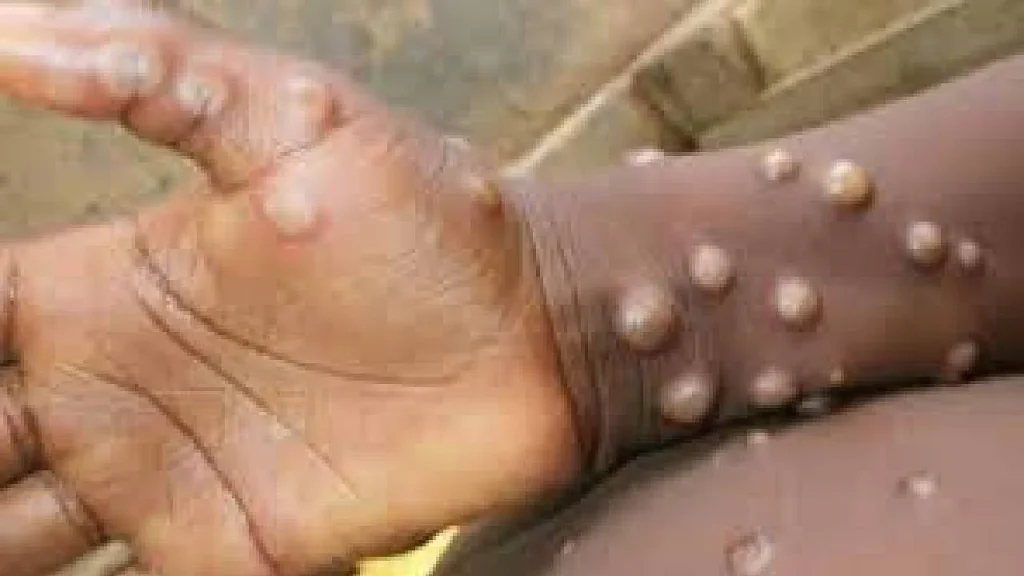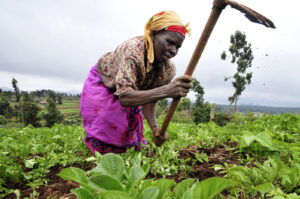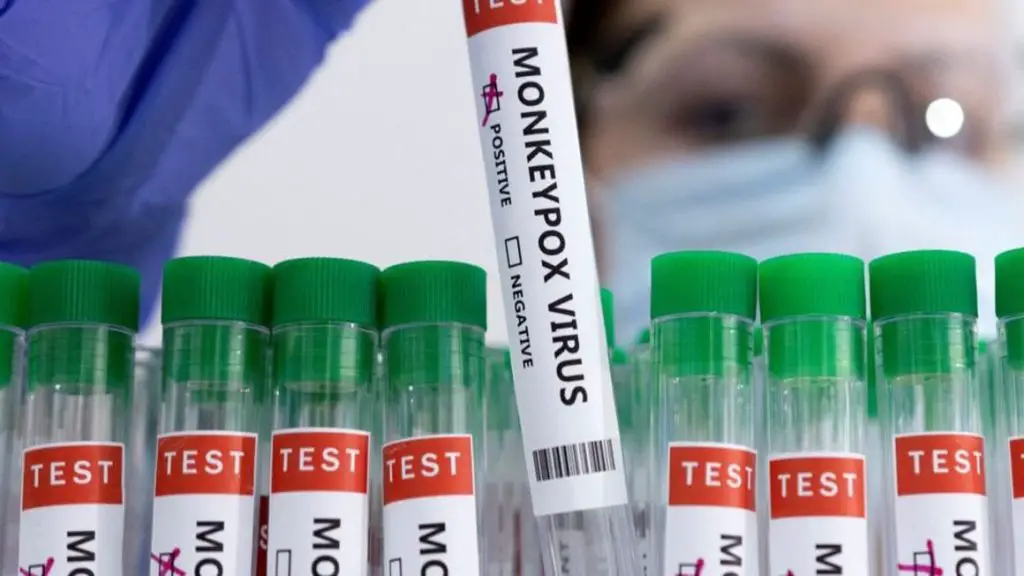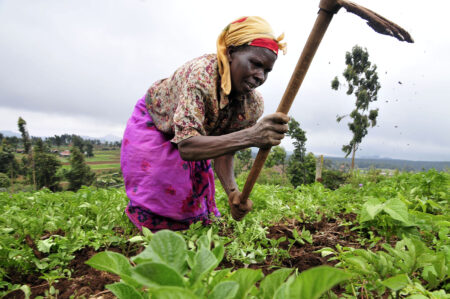- New virus spreads across 20 plus countries worldwide
- Monkeypox is similar to smallpox, experts call for universal vaccination
- African countries issue high alert on monkeypox
Over the last few weeks, the World Health Organization (WHO) has confirmed over 250 cases of a virus strain that is similar to the eradicated smallpox. The virus known as monkeypox has now been reported in over 20 countries worldwide.
Christened monkeypox, the largest known cases are in the UK and primarily among gay and bisexual men. That being said ‘…health officials emphasize that anyone can contract the virus through close personal contact,’ warns the UK Health Security Agency (UKHSA).
The World Health Organisation (WHO) says they are no known fatalities just yet and that “…people with monkeypox usually recover without treatment…there have been no deaths reported in the current outbreak. Monkeypox is more likely to cause severe illness in children, pregnant women and immuno-compromised people.”
According to the organization, the first case was reported on 7 May diagnosed a man who had returned to the UK from Nigeria. The report purports that the West African country is known to be endemic to monkeypox and may very well be ground zero for this new outbreak.
Why Customer Experience will Determine Company Success in 2020 and beyond
From that UK ‘patient zero’ two additional cases appeared and then four other cases followed, all of whom lived together and are reportedly gay or bisexual men. Since this first handful of cases, the UKHSA has reported 70 confirmed cases in England and one in Scotland, as of mid-May.
Cases so far have “mainly but not exclusively been identified amongst men who have sex with men,” according to WHO. This new revelation is against known medical knowledge of the disease because the WHO considers monkeypox not to be a sexually transmitted infection.
In a recent media briefing, Dr John Brooks, an epidemiologist with the US Centers for Disease Control and Prevention, explained that “…monkeypox is not a sexually transmitted infection in the typical sense, but it can be transmitted during sexual and intimate contact.”
From there onwards, the disease has continued to spread, as of May 21st the WHO has reported some 92 confirmed cases and 28 suspected ones. In the wake of this outbreak in the UK, other cases have been reported in Spain and Portugal and several other European countries.
The disease is also not bound to Europe alone, cases have been reported in Canada, the United States, Australia and now, in Africa. It is now suspected that there are more than 300 confirmed or suspected cases around the World.
Monkeypox: Origin, Prevention and Cure
The disease, monkeypox, is related to smallpox and is apparently not a new disease. Also, even though it is named after a primate, WHO says the disease is most commonly associated with rodents. Even though this time around the first reported cases occurred in Europe, WHO says the disease is primarily from Central and West Africa.
“Isolated cases are occasionally reported in Europe and elsewhere, often involving travellers,” admits the WHO.
The good news is that the smallpox vaccination actually prevents monkeypox as well. That said, the authorities say monkeypox cases are increasing because routine smallpox vaccination has been discontinued since WHO declared smallpox had been eradicated worldwide in 1980. What this means is that only older people, persons born before 1980 have vaccine-induced immunity against this new outbreak of monkeypox.

Monkeypox: Symptoms and Transmission
Monkeypox has flu-like symptoms e.g. fever, fatigue, and muscle aches, this is followed by swelling of lymph nodes and then a rash develops.
“The rash can appear on the face, genitals, palms, soles of the feet and elsewhere on the body,” reports WHO.
The organization says the virus has an incubation period of up to three weeks, and the illness typically lasts two to four weeks.
“The resulting sores can be flat, raised or pus-filled, and may resemble other conditions such as herpes, syphilis or chickenpox. In the current outbreak, several cases initially presented with a genital rash, and some did not report other symptoms,” WHO details.
As for the transmission, the monkeypox virus is transmitted through close personal contact, including skin-to-skin contact and kissing as in the European gay cases.
According to the organization, the virus can also spread via clothes or linens that have been in contact with fluid from sores. Health officials say monkeypox can be transmitted via respiratory droplets at close range, but the virus does not appear to spread through the air over long distances in the same way as the SARS-CoV-2 coronavirus that causes Covid-19.”
Health officials and researchers are still learning about the ongoing outbreak, but monkeypox does not spread as easily as Covid-19, and most do not expect a new pandemic of that scale. Experts expect monkeypox cases to increase as new people within social and sexual networks are exposed and previously-exposed individuals move through the incubation period. But they hope contact tracing, isolation and vaccination can bring the outbreak under control.
Bailing out Kenya Airways, halting its monkey business
Monkeypox: Precaution and Treatment
WHO urges anyone showing the above-mentioned symptoms or any unusual rash or lesions on any part of their body (especially the genitals) to contact their health care provider or a sexual health clinic.
Another precautionary measure is social distancing. The organization urges people who suspect to be infected with the virus to refrain from close social contact until they get tested.
“High-risk contacts of known cases should isolate and self-monitor for symptoms for up to 21 days. People with confirmed monkeypox should isolate, abstain from sexual activity and avoid close physical contact until the rash heals completely,” advises the European Centre for Disease Prevention and Control (ECDC).
Experts say monkeypox can be controlled by ‘ring vaccination’, that is, targeted smallpox vaccination for persons who have come in close contact with an infected individual. As expected, there are ongoing calls for universal resumption of the smallpox vaccination.
Why African countries should consider setting up post-COVID clinics
Monkeypox: Affected African countries
In Africa, there are confirmed cases across five countries all of which are said to be endemic with monkeypox. For example, several infections have been reported in the Democratic Republic of Congo (DRC).
So far, the WHO says it has received reports from Africa of 1,365 cases and 69 deaths due to the virus from mid-December to late May. Countries neighbouring the DRC like Tanzania have issued alerts over the disease.
In Tanzania, the Ministry of Health shared a poster with information on the disease including symptoms, and a precautionary warning for the public to be on high alert.
The Health Ministry said in the warning that anyone with symptoms is to immediately visit a health centre for diagnosis and treatment.











